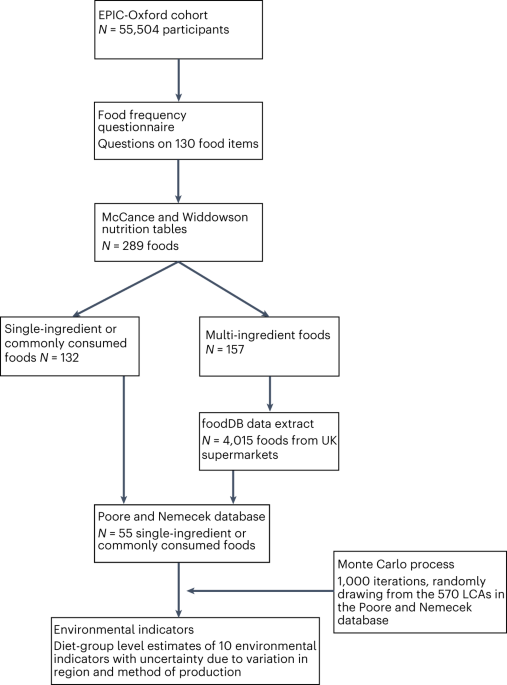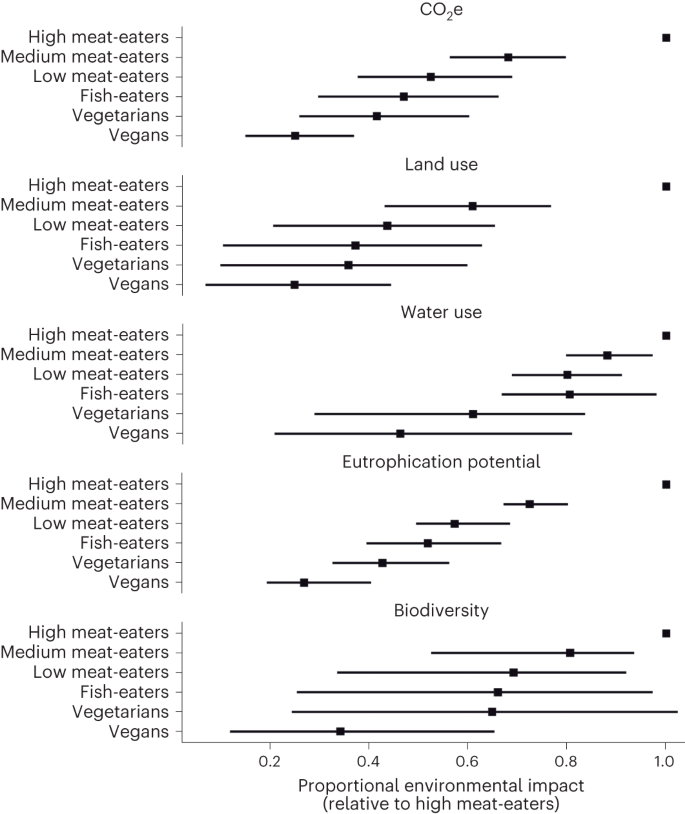cross-posted from: https://lemmy.world/post/5586412
Fig. 2: Relative environmental footprint from GHG emissions of diet groups in comparison to high meat-eaters (>100 g d−1).
Fig. 3: Relative environmental footprint from GWP100, land use, water use, eutrophication potential and biodiversity impact of diet groups in comparison to high meat-eaters (>100 g d−1).





I imagine the bulk of the beef eaters are in the high and medium meat eaters category (as you might expect). There’s a strong drip off then to the low meat eaters/pescetarians/vegetarians which tend to group together.
I’d class myself as a low meat eater and rarely eat red meat (I’ve also gone over to oat milk) - it’s better for you and because cows produce the bulk of the methane in our diet it helps with the environmental impact. I am pleased to see that completely getting rid of meat from my diet wouldn’t do that much to improve my carbon footprint unless I went vegan, which seems doubtful.
That said, the idea of our individual environmental footprints is largely an invention of the fossil fuel industry to shift the blame from themselves. The other day, I heard on the radio that if China switched off its coal-fired power stations and replaced them with gas, we’d be back on track to a rise of 1.5C, which makes me giving up the cow seem pretty small beans.
Ah well, it’s chickpea and spinach curry not for the planet but because it’s damn tasty.